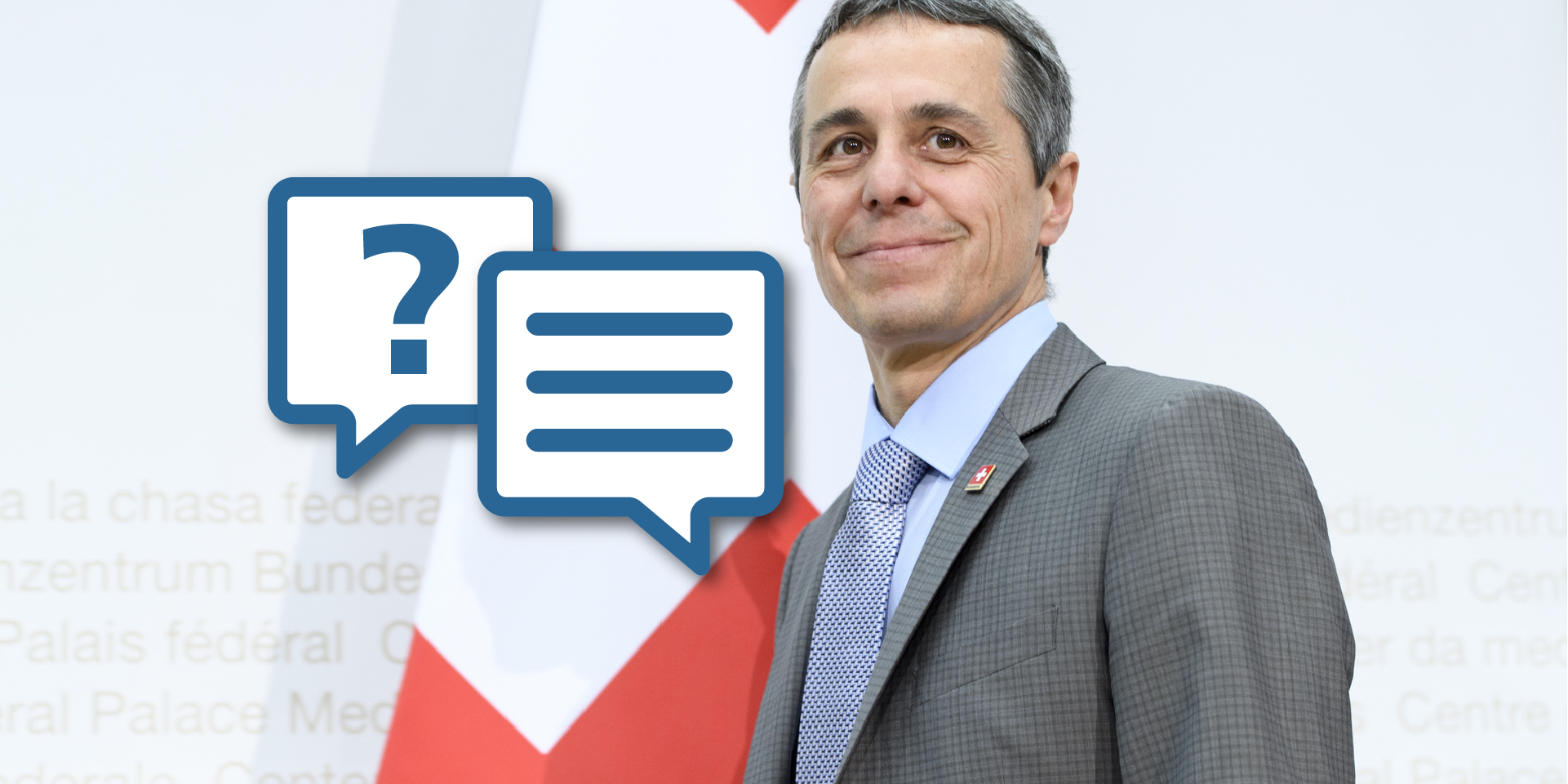"We yearn for freedom"
Federal Councillor Ignazio Cassis talks in the “Rundschau Talk” of the Swiss Radio and Television Network (SRF) about his lessons from the COVID crisis, the exchange with the EU and why Switzerland is working closely with the private sector in development cooperation. The head of the Federal Department of Foreign Affairs (FDFA) in conversation with Nicole Frank and Dominik Meier.

Ignazio Cassis talks in the "Rundschau Talk" about his lessons from the COVID crisis and about cooperation with the private sector in development matters. © FDFA
It is the week in which Switzerland is reopening its borders with its neighbouring countries, it is the week in which Federal Councillor Ignazio Cassis can meet his international counterparts directly for the first time in a long time. A special moment, as the head of the FDFA confirmed in the SRF's “Rundschau Talk” on Wednesday evening. "We need these interpersonal contacts. We long for freedom." At the same time, Ignazio Cassis stresses that the pandemic is not yet over, even if the borders are open, and travel is allowed again, the politician from Ticino prefers to recommend summer holidays in his home canton.
The desire to feel freedom again in your own body
The COVID crisis has affected the former cantonal doctor not only in his role as Federal Councillor, but also in his private life: Ignazio Cassis has experienced in recent weeks in his own family what it means when people fall ill with the coronavirus; die from it. "This closeness creates a different kind of affliction. The pandemic no longer has only a scientific interest, but is emotionally affected."
At the same time, the 59-year-old understands the growing demands for rapid relaxation of COVID measures, after all, the economic consequences of the crisis are high and the urge to regain personal freedom is strong. "Freedom – a word that was hardly used before COVID is suddenly central again. People want to move freely, they want to be able to cross borders, express their political opinions – they want to feel this freedom first hand. The longing for Friday is growing in the population; the desire for interpersonal contact is increasing.
Cooperation as a basis for prosperity, independence and security
This interpersonal closeness was not possible in the last weeks, but nevertheless the contact between the neighbouring countries had always been good. Switzerland supported Italy early on with protective masks, protective suits and disinfectants. Something that Italian Foreign Minister Luigi Di Maio also emphasized at the first reunion of the two counterparts at the Chiasso-Brogeda border crossing on Tuesday, June 16. It was precisely the neighbouring countries that had cooperated well in this crisis. A cooperation that will continue to be important in the future. "As a non-member of the EU, we maintain important bilateral relations with the EU countries. These relations are of great importance for the Swiss economy and ultimately important for our prosperity, our independence and the security of Switzerland".
Economic sector creates jobs and thus prospects
Switzerland's prosperity and security depend not only on its own economic performance, but also on stable international politics. In keeping with its long humanitarian tradition, Switzerland is committed to sustainable international cooperation (IC). This week the National Council approved Switzerland's IC strategy for the next four years by a two-thirds majority. "Foreign policy is always also domestic policy. It is in Switzerland's interest that the people around us are well", emphasises Federal Councillor Cassis.
One way to ensure greater stability internationally is to create jobs in the regions mostly affected. It is precisely in this context that cooperation with partners from the private sector can help. "Business representatives can do something that countries and aid organisations cannot do: create jobs. More than 90 percent of all jobs are created by the private sector, and such jobs are the be-all and end-all when it comes to offering young people a perspective in there hometowns. For this reason, NGOs, for example, have also been working successfully with representatives from the business community for many years, and Switzerland plans to expand this partnership as part of its IC strategy in the coming years.
